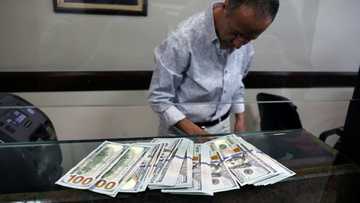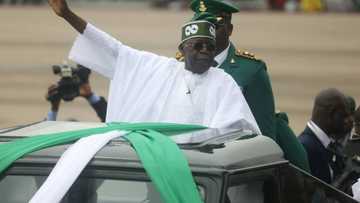Ruble slumps again as Russia's economic woes mount
Russia's currency fell against the dollar on Tuesday, weakening further on signs the country's economy is facing slower growth and stubborn inflation as the fighting in Ukraine drags on.
PAY ATTENTION: Watch our new ranking show on YouTube now! Click here or search BIAS TEST on Briefly TV channel.
The ruble crossed the psychological threshold of 100 to the dollar on the Moscow financial exchange -- having already done so briefly in August -- raising the prospect of weaker spending power for Russians forced to pay more for imported goods.
The currency had plunged to 150 against the dollar at the beginning of Moscow's assault on Ukraine in February 2022, before recovering on government efforts to limit the impact of Western sanctions and put the economy on a war footing.
But the value has again been sliding in recent months as the country imports more and exports less, with central bank governor Elvira Nabiullina warning in September of slowing growth this year and next.
On Tuesday, the ruble stood at 100.11 against the dollar and 104.65 against the euro.
The government downplayed concerns, saying the authorities were taking measures to ensure the soundness of the country's financial system.
"There is still no reason to worry," Kremlin spokesman Dmitry Peskov told reporters.
"There are certain fluctuations. But we live in the ruble zone, so excessive attention to the dollar exchange rate is a vestige of the past," he said.
The central bank has hiked its benchmark interest rate to 13 percent in a bid to shore up the currency and fight inflation, which is still above its target of four percent. Prices were up 5.15 percent in August.
Plans announced last week for a massive increase in defence spending have also heightened worries over government finances, as oil and gas revenues continue to be impacted by sanctions.
President Vladimir Putin recently ordered the government and the central bank to take measures to stabilise the currency, saying its weakness was the main cause of rising consumer prices.
bur/js
© Agence France-Presse
PAY ATTENTION: Сheck out news that is picked exactly for YOU ➡️ click on “Recommended for you” and enjoy!
Source: AFP



